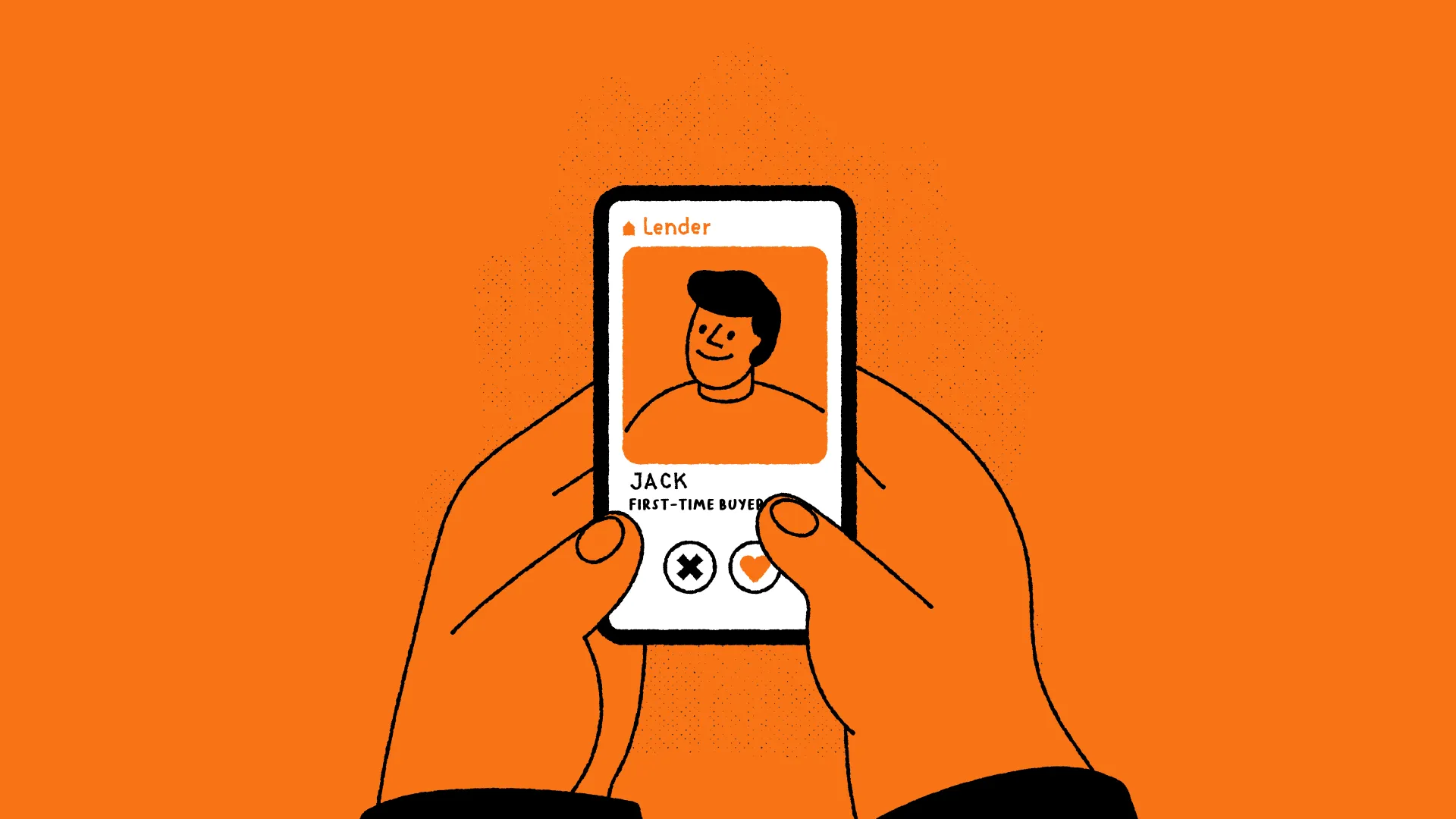Getting a Mortgage When Self-Employed
Find out everything you need to know about getting a mortgage if you’re self-employed and how Haysto could help you find the right solution to suit your needs.
Your home may be repossessed if you do not keep up repayments on your mortgage.
Exclusive broker partner to

12 mins
Updated: Nov 16 2025
12 mins
Updated: Nov 16 2025
On this page
Please be aware that by following any external links you are leaving the Haysto website. Please note Haysto nor HL Partnership Limited are responsible for the accuracy of the information contained within external websites accessible from this page.
On this page
Getting a mortgage when self-employed can sometimes feel more complicated, but it shouldn’t be a permanent barrier to securing your dream of moving home.
In our guide to self-employed mortgages we’ll outline for you all the steps you need to take to boost your chances of getting a mortgage when self-employed, what mortgage lenders will look for and where you can find help.
Is getting a mortgage more difficult when you’re self-employed?
Not necessarily. Getting a mortgage can often feel more challenging for someone self-employed, but it’s certainly not impossible. By choosing the right mortgage lender, many people who work for themselves have successfully applied for a mortgage they need for a house they want to buy.
If you’re self-employed, your annual income can fluctuate from one year to the next, making it more difficult to prove to a lender that you can afford your mortgage repayments. So, when you apply for a mortgage, a lender will have different eligibility requirements they’ll want you to meet.
Your chances of success will be far greater if you’re prepared and know in advance:
When you’ll be classed as self-employed by a mortgage lender
What proof of income you’ll need to provide, and over how long
How much you can borrow for a mortgage if you’re self-employed
Which mortgage lenders tend to look more favourably on self-employed applicants
When does a mortgage lender classify you as self-employed?
This may vary from lender to lender, but generally, a mortgage lender will consider you self-employed if you own more than 20% to 25% of a business, contributing to most of your annual income. This would include:
Sole Traders or Partnerships. Either solely or jointly responsible for a business that doesn’t have a separate legal status from its owner.
Limited Company Directors. Responsible for the day-to-day running of a limited company alongside other directors, shareholders or partners.
Contractors. Offering a particular type of skill or service required for a set or contracted period of time. Contractors are usually classed as sole traders but can also be registered as limited companies.
Freelancers. As the name suggests, freelancers are ‘free’ to offer their services to any number of clients for however long they’re required and would typically be considered sole traders by mortgage lenders.
Are agency workers classed as self-employed?
No, they’re not. Agency workers are initially classed as ‘workers’, but after 12 weeks of continuous service in the same role, they would qualify for all the same employment rights as permanent employees of the firm they’re working for, albeit on a temporary basis.
Regardless of employment status, it’s also common for agency workers to find difficulty qualifying for a mortgage, similar to self-employed applicants, due to the instability of their earnings.
If you’re an agency worker looking to buy a house, it’s a good idea to speak with a mortgage broker before applying directly with a lender.

Let's Get Started
We Make Mortgages Possible
Our Mortgage Experts are fully qualified with experience in bad credit, self-employed and complex mortgages. They have a proven track record of getting mortgages for people who’ve been rejected elsewhere.
Get Started Now Get Started NowHow long do you have to be self-employed to get a mortgage?
Most mortgage lenders would prefer you to have been self-employed for at least two to three years and have certified accounts (ideally prepared by a chartered accountant) showing enough income during this period to prove you can afford the mortgage repayments.
It is still possible to get a mortgage if you have less than two years accounts, and some specialist mortgage lenders will consider applicants with just a 1-year trading record. If you have a solid previous employment history from before you became self-employed, this could also help your case.
The main benefit of applying with a specialist mortgage lender, particularly if you’re only recently self-employed, is that they will look deeper at your application overall and on a case-by-case basis. A specialist mortgage lender could also take into account:
Your previous employment record before you became self-employed
Future income projections for a relatively new business (less than two years old)
Allowances for losses in the latest years’ accounts
Income from salary and dividends or retained profits for Company Directors
Tax deductible allowances, such as pension contributions, as part of your overall earnings figure
Our mortgage team already has strong working relationships with specialist mortgage lenders who tend to look more favourably at self-employed applicants.
If you make an enquiry, one of our Mortgage Experts will contact you to see how we can help you secure the mortgage you need.
How much can you borrow for a mortgage if you’re self-employed?
Most, if not all, mortgage lenders will base the amount you can borrow for a mortgage on a multiple of your annual income, typically between 4 and 4.5 times this figure. If you’re self-employed, the income you can declare for the purpose of this calculation depends on your trading status.
The amount of declarable income you can include may vary from lender to lender, but in most cases, mortgage lenders will assess how much you can borrow using the following earnings for each trading style:
Sole Traders. An average of your net profits over the last two to three years*.
Partnerships. Your share of the net profits, as an average, over the last two to three years*.
Limited Company Directors. Either annual salary plus dividends or your share of retained net profits.
So, for example, if you’re a sole trader with average net profits over the last three years of £40,000 and your mortgage lender uses an income multiple of 4.5 times annual income, you could potentially borrow up to £180,000 (£40,000 x 4.5 = £180,000).
In addition, all mortgage lenders will conduct a thorough affordability assessment, which includes a full review of your debt commitments and regular monthly outgoings to determine how much disposable income you have available before deciding how much you can borrow.
*This figure will be taken from either your certified accounts or your SA302 tax calculation and tax year overview, available online from HMRC
How much deposit do you need for a mortgage if you’re self-employed?
Your employment status doesn’t directly affect the size of the deposit you’ll need for a mortgage. If your business has a successful track record, with proof of income to confirm this, and you have a good credit score, mortgage lenders offering deposit deals as low as 5%- 10% should be available.
That said, it’s a good idea to save as much as you can for a deposit, as this will give you access to more competitive interest rate deals usually associated with lower loan-to-value (LTV) mortgages.
Will you pay higher mortgage rates?
No, you shouldn’t be charged a higher interest rate simply because you’re self-employed. Qualifying for the most competitive mortgage deals will depend on the overall strength of your application, credit record and the size of your deposit, not your employment status.
But, if you’ve only recently become self-employed, the pool of lenders available could be lower, meaning the choice of interest rates deals are also limited. This is why speaking with a mortgage broker who has experience of helping self-employed applicants can make a big difference.
Your broker will be able to identify the right lenders who can help, based on your application and self-employment history.
Access Your Credit Report
To get a full view of your credit information from all three agencies, use Checkmyfile free for 30 days, then £14.99/month (cancel anytime).
Get Started NowHow to improve your chances of getting a mortgage when you’re self-employed
There are several steps you can take that will boost your chances of getting a mortgage if you’re self-employed. These include:
Preparing all your documentation in advance
It’s well worth preparing all the paperwork and evidence of earnings before you start the mortgage process so you’re ready to go when you find the house you want to buy.
As a self-employed applicant, you’ll need the following:
Certified accounts or SA302 tax calculation and tax year overview for the last two to three years (your accountant should be able to help provide these documents)
If you’ve been trading for two years or less, any evidence you can provide of upcoming contracts or future income projections
Evidence of salary and any dividend payments received or retained profits (if you’re a company director)
Details of previous employment history, including evidence of earnings, if you’ve only recently become self-employed
The last three to six months' bank statements
An up-to-date CV (if you’re a contractor or freelancer, showing a list of current and previous clients)
Personal I.D. - passport or driving license and proof of address (utility or council tax bill dated in the last three months)
Check your credit score
You can download your Credit Report at any time, and it's recommended that you do this before applying for a mortgage. This will give you time to review your report and credit score to make sure they’re in good order.
Any information on your Credit Report that’s either outdated or inaccurate, potentially hindering your mortgage application, can be removed if you contact the Credit Reference Agency (CRA).
If your credit record has been affected by any bad credit issues, you should take the time to improve your credit score before you apply for your mortgage. This can include simple steps such as ensuring you’re registered on the electoral roll* or cancelling any old credit accounts you no longer use.
Save for a deposit
The more deposit you can save, the stronger applicant you’ll be to a larger number of mortgage lenders. A higher deposit will also give you access to the lowest interest rates.
If you’re unable to save a large deposit - don’t panic! There will still be several mortgage lenders who will still consider you with just a 10% or possibly 5% deposit if all other aspects of your application are in good order.
Speak to a mortgage broker
Using the services of an experienced self-employed mortgage broker could save you a lot of time and, potentially, some money, too. Your broker will be able to identify lenders who tend to look more favourably on self-employed applicants and help you prepare all the necessary paperwork.
An experienced advisor - like us! - who knows what mortgage lenders look for with self-employed cases could make all the difference between getting accepted or rejected.
Can you get a joint mortgage if you're self-employed?
Yes, you can. In fact, getting a joint mortgage with your spouse or partner could bolster your chances of success, particularly if one applicant has a strong employment record and a higher income. You could also borrow more for a joint mortgage as a lender will take both applicants’ income into account rather than just one.
If you’re applying on a joint basis, it doesn’t matter if one or both of you are self-employed. A mortgage lender will still assess your eligibility based on your combined income. So, if each applicant is self-employed, you would both need to produce evidence of earnings from your last two to three years accounts or SA302 tax calculation.
If one of you is employed, a lender would need this applicant to produce their last three payslips and latest P60 tax form. In some cases, a lender may also ask for a copy of your employment contract.
Can you get a self-employed mortgage with bad credit?
Yes, it’s possible. It all depends on the type of bad credit issue you’ve had, how much it has affected your credit score, when it occurred and the amount involved. Choosing the right mortgage lender will also be very important.
Several mortgage lenders (all of which have strong working relationships with us) specialise in helping people with bad credit and assess applications case-by-case. You may have to pay a slightly higher interest rate and accept a lower loan-to-value (LTV). However, this may be worthwhile in the long run if you can secure the mortgage you need.
Is remortgaging more difficult if you’re self-employed?
No, not necessarily. If you’re remortgaging with a new lender to benefit from a lower interest rate deal, the application process will be similar to when you applied for your original mortgage, and you’ll need to provide proof of your income.
If you’re simply moving to another deal with your existing lender, it’s unlikely they will carry out any further affordability assessments.
Remortgaging to release equity to carry out home improvements or consolidate debts involves borrowing more money and will also mean you’ll need to provide proof of income, whether with your existing lender or a new one, to show evidence that you can afford the increased repayments.
Do self-certified mortgages still exist?
No, self-certified mortgages haven’t been available since 2009. They were designed to help self-employed applicants by allowing income to be declared without showing any proof. However, the Financial Conduct Authority deemed this too risky following the financial crisis of 2007-08 and banned self-certification.
If you’re self-employed and struggling to produce enough proof of your income, it’s worth speaking with a mortgage broker rather than applying directly with a lender. They will be able to advise you on the best steps to take, which could give you a clearer route to getting the mortgage you need.
How Haysto could make your mortgage possible
At Haysto , we’ll make sure you’re matched with one of our fully qualified Mortgage Experts. They have lots of experience arranging mortgages, regardless of someone’s employment status or trading style.
Each of our customers gets four experts working on their case. Our dedicated team will guide you through the whole mortgage process from start to finish, including:
Ensuring your mortgage application is ready for submission within 24 hours
Searching the mortgage market to find you the best terms possible
Providing a true Agreement In Principle (AIP) - one you can trust directly from a lender
£100 gift card if we can’t make your mortgage possible, but another broker can
Just make an enquiry, and one of our Mortgage Experts will contact you to explore the options available.
We Make Mortgages Possible
Our Mortgage Experts are fully qualified with experience in bad credit, self-employed and complex mortgages. They have a proven track record of getting mortgages for people who’ve been rejected elsewhere.
Get Started NowRelated Articles

Self-Employed Mortgage Calculator
Our self-employed mortgage calculator can show you how much you might be able to borrow, estimate your monthly repayments and calculate loan-to-value.
Try it now

Self-Employed Mortgage With 1 Year's Accounts
Need a self-employed mortgage with just 1 year's accounts? Find out how Haysto could help you find an affordable mortgage solution that suits your needs.
Read guide

What Mortgage Lenders Look For In Mortgage Applicants
Find out exactly what mortgage lenders look for in a mortgage applicant and how Haysto could help you navigate safely through the application process.
Read guide
Information
Tools & Guides
Haysto, a trading style of Haysto Ltd, is an appointed representative of HL Partnership Limited, which is authorised and regulated by the Financial Conduct Authority.Registered Office: Haysto, Crystal House, 24 Cattle Market Street, Norwich, NR1 3DY. Registered in England and Wales No. 12527065
There may be a fee for mortgage advice. The exact amount depends upon your circumstances but will range from £599 to £1599 and this will be discussed and agreed with you at the earliest opportunity.
The guidance and/or information contained within this website is subject to the UK regulatory regime and is therefore targeted at consumers based in the UK.
Your home may be repossessed if you do not keep up repayments on your mortgage.







